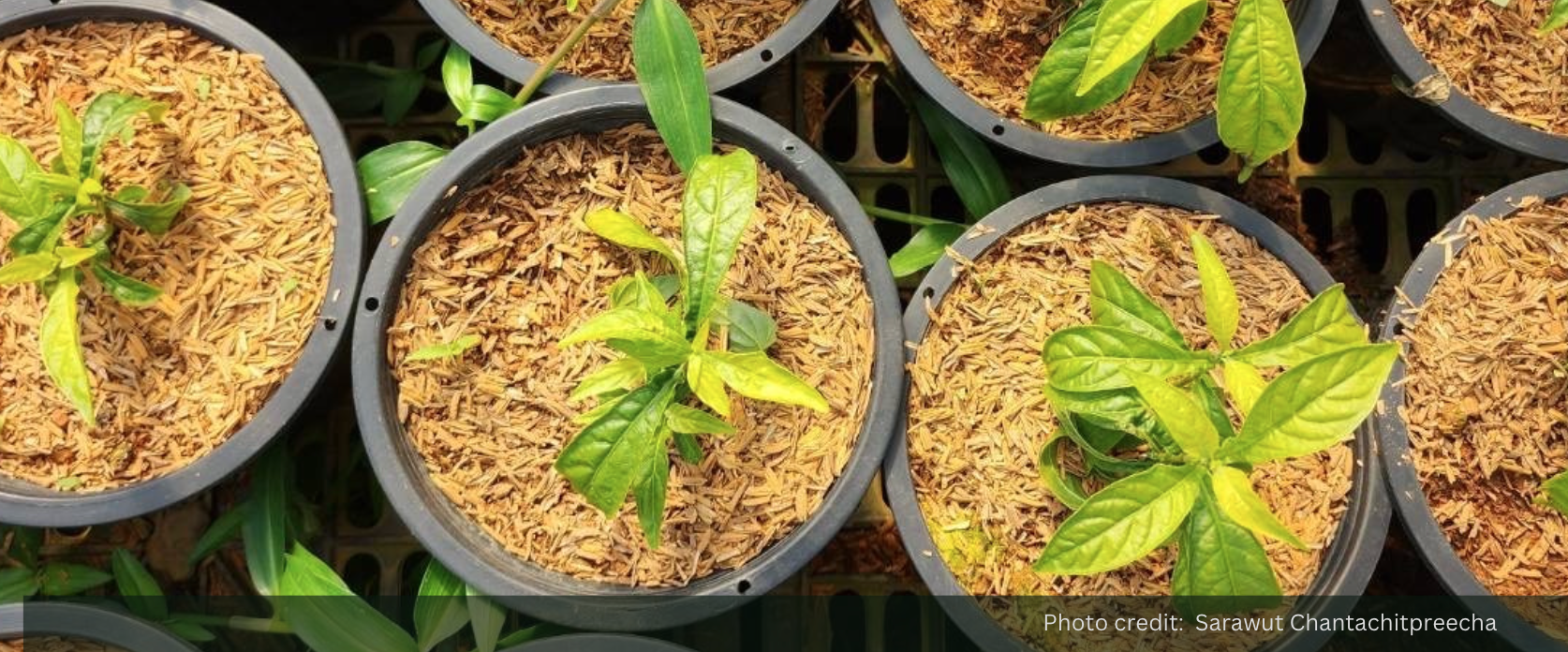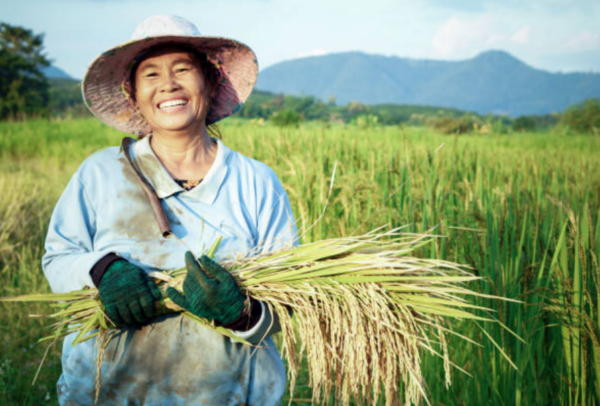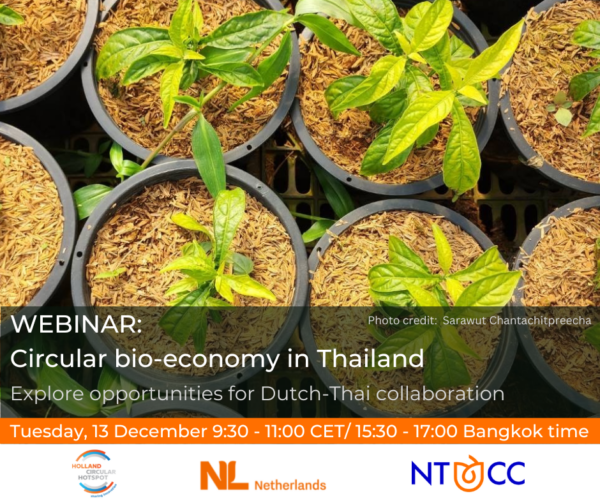Circular economy opportunities in Thailand
Thailand, known for its great tourism destinations, agriculture, and food, has experienced rapid industrial development and urbanization. For decades, Thailand has had sustainability in its core values, starting with the ‘sufficiency economy’ principles until today with plenty of policy, academic and industrial initiatives in the circular economy.
Thinking about doing business in Thailand? Below you will find information on policy landscape, circular economy strategy, and selected priority areas!
Economic indicators
- Total Population (2021): 69.9 mln.
- GDP (nominal + ranking): USD 506 bln, World Ranking: 28
- Purchasing power (2021): USD 7,233
- Export from the NL (2021): USD 1.04 bln
- Economic growth (2021): 1.6%
- Ease of doing business (2019): 21/190
- Corruption perception Index (2021): 35
- Unemployment rate (2021): 1.9%
- Currency and exchange rate euro: approx. 37 Thai Baht (THB) per 1 euro
- Time difference with NL: +6.00 hrs
Circular economy indicators
- Recycling rate of municipal solid waste (2021) : 32%, 7.89 million tons
- Proper disposal of waste (landfill, incineration, composting, RDF) (2021)3: 37%, 9.28 million tons
- Improper and uncontrolled waste streams (open burning, dumping) (2021)3: 31%, 7.81 million tons
- Renewable energy usage (2021): 14.6%, 12,379 MW (30% biomass, 25% hydropower, 24% solar, 12% wind)
- Long-term Climate Risk Index (CRI) 2000-2019 World rank : 9 (Netherlands position: 69)
"Rapid urbanization and resource constraints accelerate Thailand’s need for a circular transition including an integrated waste management system. At the same time, its strength in agricultural and food industries offers unique opportunities in biofuels, bioplastics and biochemicals while using waste streams for renewable energy."
The Netherlands Embassy in BangkokPolicy landscape
Today, Thailand is a net importer of energy and raw materials while dealing with pollution and biodiversity challenges at the same time. According to the World Bank, public and private stakeholders recognize the need for sustainable and self-sufficient economic practice, which could deliver estimated additional revenue and cost savings of three of its main sectors; food and agriculture, construction, and electrical appliances and electronics.
Thailand has committed to reduce its greenhouse gas emissions in line with its Nationally Determined Contributions (40% reduction by 2030), respectively through energy-related interventions accounting for 74 percent and 10-26 percent in production processes and waste management, and an even more ambitious target to reach carbon neutrality by 2050, with net zero GHG emissions by 2065.
Bio- Circular- and Green- Economy (BCG)
To enable these ambitious goals, the Thai Government has adopted the BCG model to drive innovation and technology- led developments in four priority areas:
- food and agriculture
- energy, material, and biochemicals
- medical and wellness
- tourism and the creative economy.
The three components of the BCG economy are described as Bio-economy: the production of renewable biological resources and conversion into products; Circular economy: building resources for reusing and recycling; and Green economy: driving sustainable development including societal, economic, and environmental success and balance.

BCG in action
As part of the BCG plan, the ‘BCG in Action’ program enables and stimulates individual government bodies, agencies, public-private partnerships to initiate actions that support the overarching mission. A number of measures are being in place or being developed. These include:
- Under the Thailand’s roadmap on plastic waste management 2018-2030, three phases are defined to reduce polluting plastics streams and increase recovery and recycling rates. Various products are banned, and guidelines and targets are being developed for specific products. In addition to the existing plastic waste import bans, the Ministry of Natural Resources and Environment will ban 100% of plastic waste imports by January 2026.
- Exploration of Extended Producer Responsibility (EPR) schemes in various sectors, including the electronics and packaging industries. The Pollution Control Department (PCD) is drafting regulations and private sector partners are involved in running voluntary pilot projects. This process also includes identifying and updating existing regulations that form barriers for utilizing recycled materials into food packaging applications, as well as regulating and legalizing the existing informal part of the waste management industry (“Salengs”)
- A voluntary green procurement policy under Thailand’s Action Plan of Green Procurement Promotion (2021-2022) to stimulate governmental agencies to increase circular procurement, which accounts on average between 13-20% of GDP.
- Investment promotion under the Thailand Board of Investment ‘BOI go Green program’, that offers a number of investment promotion incentives, including Corporate Income Tax exemptions, further information is found in the investment promotion guide.
- The Alternative Energy Development Plan (AEDP) aims to increase the share of renewable energy to 30% of total energy consumption by 2037
Dutch and Thai organizations are closely working together in the BCG transition, with awareness, research and capacity development activities, such as the Dutch-Thai Sustainability Dialogue (2019) and the recent Orange-Green Week led by the Embassy of the Netherlands, the development of a CIRCO Hub together with Global Compact (2021), and the Thailand and Malaysia sector scan on opportunities for Waste-to-Energy markets by the Netherlands Enterprise Agency.
Selected priority areas
The Bio-, Circular- and Green- transition opens many opportunities for R&D, socio-economic innovations, and infrastructure development partnerships, particularly in the four priorities industries mentioned above, which have a combined economic representation of 3.4 trillion THB (91 billion Euro), accounting for 21% of GDP. Specifically for Dutch companies, the Netherlands Enterprise Agency (RVO) and the Netherlands Embassy in Thailand published business opportunities in the Thailand Factsheet Circular Economy.
Bioeconomy
With a wealth of biomass crop producing conditions and capabilities (Thailand ranks consistently in the Global top 5 sugar producers), Thailand is uniquely positioned to drive the development of a high-added value bioeconomy, which is one of the key priority areas in the BCG model.
With its agricultural, food, and biomass producing industries Thailand can feed biorefineries to produce high-value biofuels, bioplastics and biochemicals, while also using agricultural waste streams for renewable energy as well as functional fibers and food ingredients. Together with innovators in the food industry the protein transition is being explored and circular agriculture is widely recognized as the next big step forward in the agricultural sector and supported financially by government agencies such as the Future Food Program.
Waste management and pollution control
Like other countries in South-East Asia, Thailand faces a massive challenge to organise, develop and implement waste management systems and infrastructure in an integrated way, which requires a combination of technology, financing, policy incentives and consumer awareness.
This challenge is considered a high priority since pollution resulting from improperly managed waste, such as plastics, affects biodiversity, human health and sectors like tourism and fisheries. With ongoing activities to develop a packaging EPR program, there is increased momentum that offers opportunities for waste remediation and management technologies and infrastructure, such as sorting and recycling, river and marine remediation and waste-to-energy solutions in central and de-centralized setups. Various stakeholder groups, such as the Public-Private Partnership Plastics, are active in this space, providing entry points for businesses.
Construction Industry
Although in most sectors, individual circular economy action plans and roadmaps have been or are being developed, the building and construction sector has already united in the Circular Economy in the Construction Industry (CECI) stakeholder group, which is tasked with the challenge to reduce waste and improve circularity in urban development projects and focus on front-end circular design as well as waste management of construction materials such as concrete and asphalt.
Electrify mobility and transport
The drive to electrify mobility and transport (target 100% of newly sold vehicles being zero emission by 2035) as well as a shift towards renewable energy sources (target 50% of power mix to be from renewable sources by 2050) stimulate the development of waste-to-energy capabilities, including from biowaste and plastics waste.
Major upcoming events
- ASEAN event 2023, 21 – 23 March 2023
- Recycling & Recovery Expo 2023, 29-30 March 2023
- ASEAN Sustainable Energy Week 2023, 30 August-1 September 2023, QSNCC
- Sustainable Development (ESG) Symposium, annual event
Relevant networks
Circular economy networks in Vietnam
- Global Compact Network
- CIRCO Hub Thailand
- Circular Economy in Construction Industry (CECI) Network
- Thailand circular economy hub (in development)
- PPP Plastics
Business networks
- Netherlands Thai Chambers of Commerce (NTCC)
- Federation of Thai Industries (FTI)
- Thailand Business Council for Sustainable Development (TBCSD)
- Netherlands Enterprise Agency (RVO)
Knowledge institutions
- STEAM platform
- Research & Innovation for Sustainability Center (RISC)
- KX Knowledge Exchange
- ASEAN Centre of Sustainable Development Studies and Dialogue
Embassies
Useful reports
- World Bank Group report:Thailand Economic Monitor June 2022: Building Back Greener: The Circular Economy
- Thailand Factsheet Circular Economy (2021)
- Economic Review Thailand 2022 – H1
- Thailand Investment Review 2019 – Circular Economy
- Funding opportunities Netherlands
- Sector scan of the fundamentals for developing the WTE market in Thailand and Malaysia


